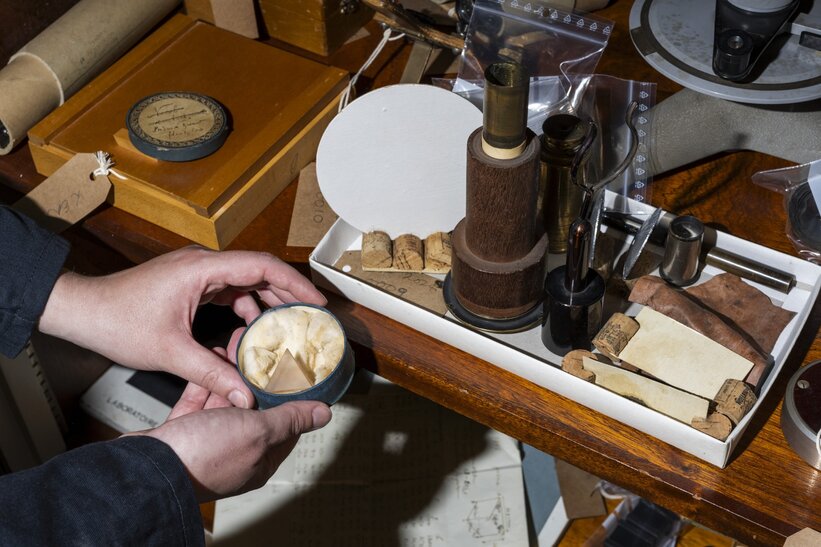Programme Tailor-Made Approach to Faculty Collections
Programme Objective
The Library, under the direction of the Executive Board, has initiated the Programme Tailor-Made Approach to Faculty Collections to support faculties in professionalizing the management and use of these collections. The programme's goal is to enhance the management and use of TU Delft's numerous historical collections. This includes assessing the heritage value of various collections, identifying objects suitable for educational purposes, and addressing other faculty-specific needs, such as exhibitions or a historical timeline of education and research.
Over its 180-year history, the TU Delft has built up rich and diverse historical collections that reflect the development of the university, technical research, and education. Some of these collections are centrally managed by the TU Delft Library, but a large part remains with the various faculties. These collections encompass a broad range, from architectural models and crystal structures to telephone exchanges and satellites.
The programme is part of the Academic Heritage, History, and Art department within the Library, where the agreed services for faculty collections will continue to be housed after the programme concludes.
What types of objects are included in the programme?
Faculty collections may include a wide range of objects often linked to the faculty's teaching and research, such as:
- Objects used or collected for teaching, including crystal models, minerals, chairs, models, drawing instruments, aircraft wings, electron tubes, radios, computers, and telephones for both electrical engineering and industrial design, glass slides, and photographs.
- Objects used or collected for specific research by professors or departments, such as specimens, instruments (e.g., microscopes), parts of research setups, or specially customized equipment.
- Standalone items such as commemorative pieces, public display devices, portraits of professors, and gifts from student associations.
Collections of digital or physical documents are considered archives. These are not included in the programme and are managed by the Document management and Archive (DMA) department of the Library. More information can be found here.
Contact for Questions or Comments:
Liselotte Neervoort, Programmamanager
Email: l.l.neervoort@tudelft.nl Phone: +31 (0)6-38556998
Or through Askyourlibrary: library@tudelft.nl







